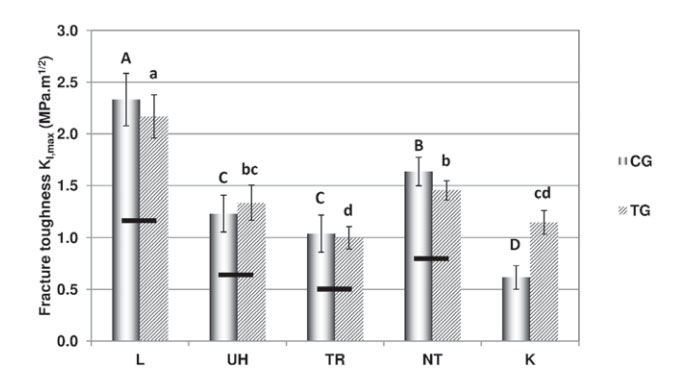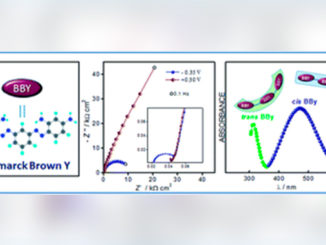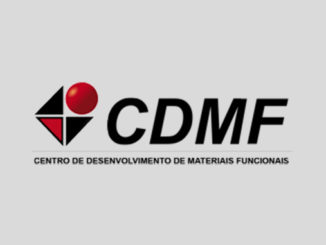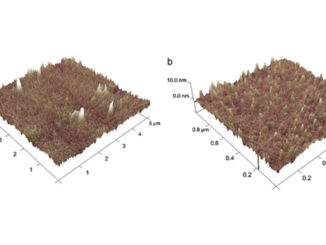
Writers: Cíntia de S. Silva, Ana L. Machado, Carolina de A. L. Chaves, Ana C. Pavarina, Carlos E. Vergani
Keywords: Acrylic resins; Denture bases; Thermic treatment
Abstract: Objective: This study evaluated the fracture toughness (FT) of denture base and autopolymerizing reline resins, with and without thermocycling (T). Material and Methods: Specimens of each material (denture base acrylic resin – Lucitone 550 – L; autopolymerizing reline resins – Ufi Gel Hard–UH, Tokuyama Rebase II-TR, New Truliner–NT and Kooliner-K), were produced, notched and divided into two groups (n=10): CG (control group of autopolymerizing reline resins and L): FT tests were performed after polymerization; TG (thermocycled group): FT tests were performed after T (5°C and 55°C for 5,000 cycles). Results: Results (MPa.m1/2) were analyzed by two-way ANOVA and Tukey’s test (p=0.05). L exhibited the highest FT mean values in both groups (CG – 2.33; TG – 2.17). For the CG groups, NT showed the highest FT (1.64) among the autopolymerizing reline resins, and K the lowest (1.04). After T, when the autopolymerizing reline resins were compared, a statistically significant difference in FT was found only between the NT (1.46) and TR (1.00). Conclusions: Thermocycling increased the FT of K and did not influence the FT of L, UH, TR and NT.
See PDF: Effect of thermal cycling on denture base and autopolymerizing reline resins
DOI: 10.1590/1679-775720130061




